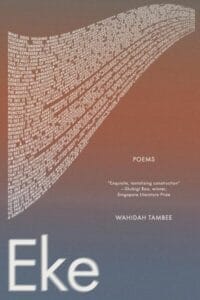Russia came late to Japan, but devoted considerable energies to grappling with one of the world’s great intelligence challenges and penetrating the insular Asian nation once the Japanese shifted in the latter half of the 19th century from a policy of restricted contact with the outside world to one of imperial competition with Moscow and the other great powers.
One More Story About Climbing a Hill: Stories from Assam is the latest book by renowned Assamese writer Devabrata Das. This collection of eighteen short stories, translated from the Assamese original, offers a unique and varied portrait of contemporary Assam. Remarkably, despite being translated by several individuals, including the author himself, the prose maintains a cohesive and consistent style throughout. Several stories deal with both Assam’s historical, and contemporary political challenges.
Ancient India is a new publication and exhibition by the British Museum that explores the shared origins of Hindu, Buddhist and Jain devotional art in figurative imagery of India’s ancient nature spirits. These three of the world’s major religions originated in India and gradually spread to other regions of the world. Between 200 BCE and 600 BCE, representations of their deities and enlightened teachers underwent transformation from symbolic to human form.

A visual enactment of attempts at articulating, Eke is the at-tempt-ation towards meaning. What does the feeling of holding your words and thoughts back—stuck and struck in a state of percolation, a plasma state of signification—feel like? What does it look like for ambivalence and divergence to converge during the moment of articulation, when all word-opportunities collide at once, like wildly unspooling threads, like heavy raindrops on a glass surface racing from one fork to the next?
The Silk Road may be the most famous trade network in history. But the flow of silk from China to the Middle East and Europe isn’t the only textile trade that’s made its mark on Central Asia, the subject of Chris Aslan’s latest book Unravelling the Silk Road: Travels and Textiles in Central Asia, recently published in paperback.
South Korea is famous for its workaholic culture: although things are slowly changing, white collar workers often feel pressure to work long hours and to satisfy every whim of their superiors in a rigidly hierarchical company structure. There is pressure to spend evenings at company dinners and even weekends hiking with the team. Among OECD countries, South Korea is ranked at number 5 for working hours, and at number 33 for worker productivity. The anthropologist David Graeber, author of Bullshit Jobs, would have had a field day studying Korean office workers and their creative strategies for seeming busy.
In its 1911 inaugural issue, the Women’s Eastern Times (Funü shibao) printed a composite photograph of embroiderer Shen Shou (1874–1921) together with her work—an embroidered portrait of the Italian queen Elena of Montenegro (1871–1952). A caption slip pasted onto the embroidery states: “Commendation from the Empress Dowager to bestow [upon her] the character ‘Shou’ [longevity] by imperial decree / [This is an] embroidery work by Yu-Shen Shou, the imperially appointed principal instructor of the Embroidery Program for Women at the Ministry of agriculture, Industry and Commerce”.
Pakistani writer Faiqa Mansab’s second novel The Sufi Storyteller is a South Asian take on stories about stories blended with a murder mystery. It opens with a murder in the library which doubles up as the office of the protagonist Layla, an expert on women and their role in storytelling traditions teaching at a university in Illinois. The naked dead body is that of a woman, has bruises on her throat, and is dressed in a red cloak. The problem is that this is the second dead body Layla has stumbled upon. As Layla searches her memory about the previous victim, she begins to realise that there is a pattern and perhaps some one is after her.
Globalization has polarized people into nativists and cosmopolites. Nowhere is that truer than in India. The nativist reaction in India to profound technological, commercial and social changes of today takes refuge in the myth of an unchanging, hermetically sealed, and eternal civilization. Audrey Truschke’s 600-page survey of five millennia of history shows how misguided this myth is, while explaining why it has triumphed politically in recent years.
The star in Opera Hong Kong’s new production of Wolfgang Amadeus Mozart’s singspiel “The Magic Flute” is the staging. That is not to take anything away from the singing: Mexican tenor Andrés Moreno Garcia as Tamino, Americans John Chest and Sofia Troncoso (Papageno and Pamina) all sang credibly. Local soprano Rachel Kwok was a sparky Papagena and the “three ladies” (Candice Chung, Ashley Chui and Carol Lin—done up as airline stewardesses, more of which later) more than held their own.

You must be logged in to post a comment.